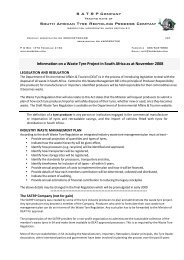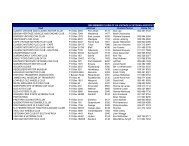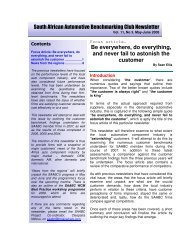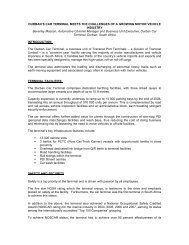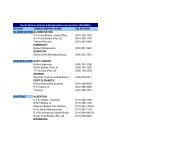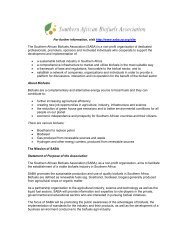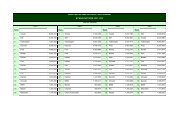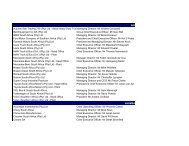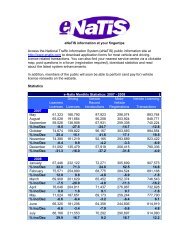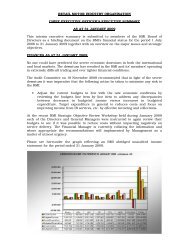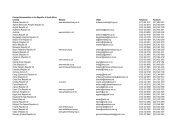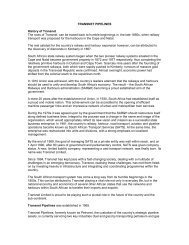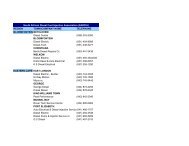Toyota South Africa Sustainability Report 2008 - Automotiveonline ...
Toyota South Africa Sustainability Report 2008 - Automotiveonline ...
Toyota South Africa Sustainability Report 2008 - Automotiveonline ...
Create successful ePaper yourself
Turn your PDF publications into a flip-book with our unique Google optimized e-Paper software.
<strong>Sustainability</strong> <strong>Report</strong>_14-10-<strong>2008</strong>:Layout 1 10/14/08 2:45 PM Page 27<br />
Social Aspects<br />
<strong>Toyota</strong>’s founding principle was to contribute to the development of a prosperous society<br />
through the manufacture of automobiles. <strong>Toyota</strong> understands that responsible mobility<br />
is one of the key tools to unlock the poverty cycle. People are therefore at the core of <strong>Toyota</strong><br />
<strong>South</strong> <strong>Africa</strong>’s business. We recognise and pursue the value to be found in harmonious<br />
and sustainable relationships – with customers, suppliers, communities and employees.<br />
Stakeholder Engagement<br />
As <strong>Toyota</strong> <strong>South</strong> <strong>Africa</strong>, we engage in social contribution activities regarding the<br />
environment, education, arts, culture, and community care, which we believe to be the<br />
basis of a future sustainable society.<br />
Over our 46 years of operation, we have identified and continue to engage with the<br />
following stakeholder groups:<br />
• Employees and employee representatives;<br />
• Other Original Equipment Manufacturers (OEMs);<br />
• Local communities, including community based organisations, community<br />
representatives and leaders through informal structures e.g. school governing bodies,<br />
community resource centres, as well as formal structures such as local municipality<br />
structures, and Durban <strong>South</strong> Area Based Management;<br />
• Civil society, including non-profit organisations;<br />
• Local education institutions such as Schools, Further Education and Training High<br />
Schools (FET), FET Colleges, training providers, Universities;<br />
• KZN Provincial Government Departments such as the Department of Environment,<br />
Economic Development and Trade and Industry;<br />
• Other local businesses through the Durban Chamber of Commerce and Industry;<br />
• <strong>Toyota</strong> Motor Corporation;<br />
• <strong>Toyota</strong> <strong>South</strong> <strong>Africa</strong> Foundation;<br />
• Service providers; and<br />
• The media.<br />
Key stakeholders are identified based on developing and maintaining good relationships,<br />
mutual understanding and benefits with partners.<br />
Engaging with stakeholders is not just an exercise in risk and reputational management<br />
for us.We want to engage with our – and their - minds and hearts, and also believe that<br />
we can be instrumental in creating behaviour changes necessary to develop harmonious<br />
relationships with each other, and with our natural world.<br />
<strong>Sustainability</strong> <strong>Report</strong> <strong>2008</strong> 27



